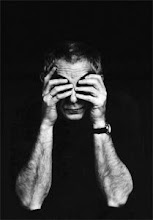'We've all got it coming son, today's your turn.' Detective meadows uttered to the last caught murder suspect on the final episode of what would sadly be the end of 26 year old 'The Bill', one of the longest running series in British TV history. The end for a great show is always sad but some are inevitable...they will end...most things do. However in the case of 'the bill', it's end was more to do with change destroying it, as oppose to cutbacks.
'The bill' was originally a half an hour slot, like most TV shows into the 90's, an hour was now the standard format and so it followed. With it's initial first line 'okay Carver, let's do it.' The ending titles sequence of the police officers feet walking down the street, was always pictured as it official image, even after it was dropped for a more upbeat, uptone, "modren" title sequence. 'The bill' was about police officers, the law and their work. The bill may have had storylines over the years with certain characters but essentially the bill was not a soap, which made it stand out from all other British TV programmes.
I throughly enjoyed watching it over the years, I always knew I could come back to watching it after a long period, not worried about missing any huge continous plotline, because there usually wouldn't be one. I was tuning it for a gripping story, based on people living in London, a crime, suspects, investigation, solved, end. No gimmicks, no music to disguise the reality, in fact using ambience sounds to their advantage, creating high realistic drama.
The most remembered and favourite TV year of the bill for me is quite recent with 2008, in which they had a very ambitious and extremely successful eight parter titled 'witness', which focused on knife and gun crime within young children on a council estate. 'Witness' was unrelentless, gripping, powerful and thoughtful drama. Later that year, a two parter 'Hold me tight' tackled the murder of a eight year school girl and the main suspect a young boy around the same age. In the end, the boy was convicted of the crime after confessing but the officers were not sure weather to file the crime under murder, accidental or manslaughter. 'Over the limit' focuced on PC Sally Armstrong, who drunk a bit too much at a nightclub and crashed her car into another, the episode focused on three of the officers as they attempted to avoid anyone else at the station finding out about the incident and Sally being involved. The episode ends with Sally not being found out. As the bill carried onto other episodes and other storylines, this was never referred to again, PC Armstrong never got her comeuppance, noramally forbidden in the TV world.
The bill changed it formats over the years, adjusted to the times, sadly it was change that brought about it's demise and sudden lowered viewing figures. The change was to happen in September 2009, in which the format changed the gritty cinematography to glossy, from handheld to dolly. With a title sequence, devoid of it's original music of 26 years, now replaced with a confusing other track, murky ambience and pointless fast images. It was a sadly a matter of time, as the Bill now, was no longer gripping, exiciting, relevent or interesting. With an ambitous final steadycam one shot through the station, moving outside the station, crane shot up and end credits, the final epsiode entitled 'respect' dedicated it's long TV run to the men and women of the Metropolitan police force, past and present, as the final words of detective Meadows echoed...
'Today was one of the good days.'
The bill, ordinary people in a uniform, taking a responsibily for society.
R.I.P. You're nicked!
